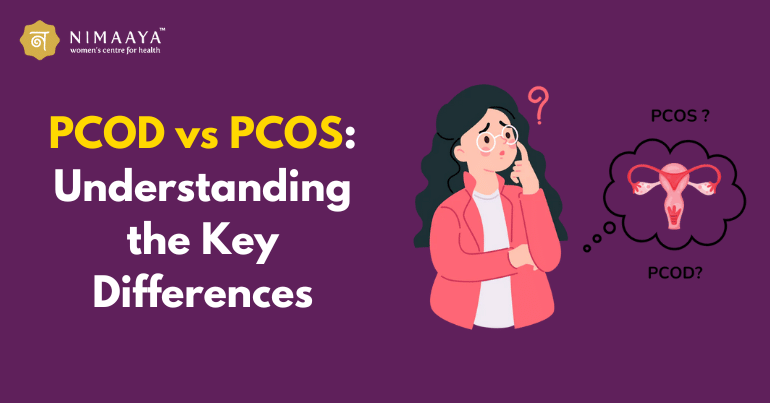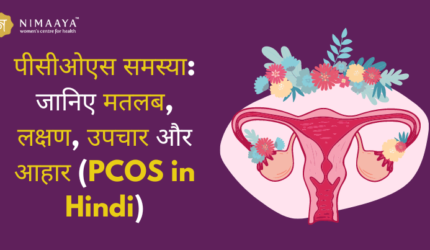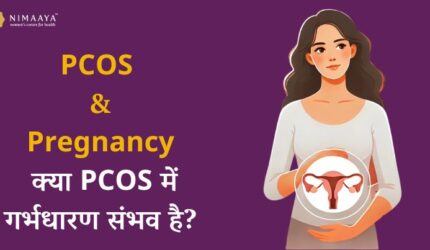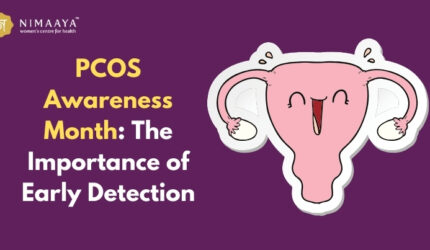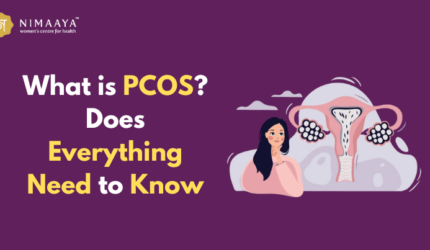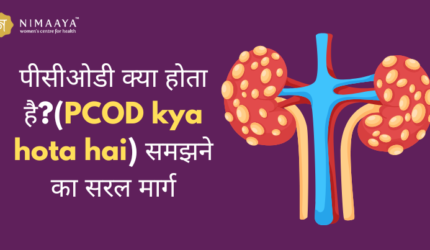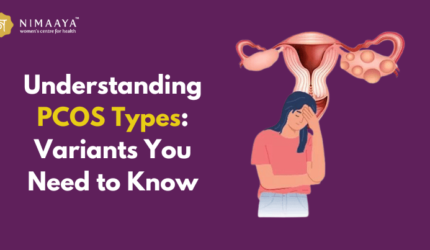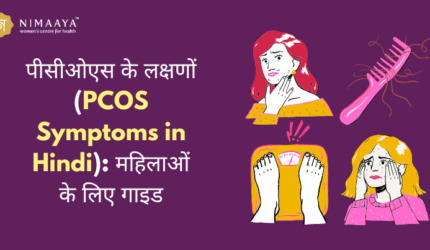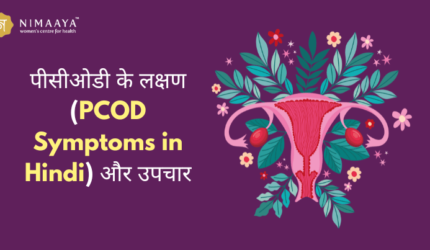Introduction
Polycystic Ovary Syndrome (PCOS) and Polycystic Ovary Disorder (PCOD) are often used interchangeably, leading to confusion among women seeking to understand their reproductive health. However, there are distinct differences between PCOS and PCOD, impacting symptoms, diagnosis, and treatment. This article aims to clarify these conditions, highlighting the PCOD and PCOS difference, their causes, symptoms, and treatment options. The female reproductive system can be complex and, at times, challenging to understand. Among the myriad of conditions affecting women’s health, PCOD and PCOS stand out due to their prevalence and impact. While both conditions affect the ovaries, they have different implications for hormonal balance, fertility, and overall health. Whether you’re seeking information for yourself or a loved one, this guide will help demystify the difference between PCOS and PCOD.
Why Do We Need to Know the Differences between PCOD and PCOS?

Knowing the differences between PCOD vs PCOS is essential for accurate diagnosis and tailored treatment. Both conditions affect the ovaries but differ significantly in their causes, symptoms, and health implications. Understanding PCOD vs PCOS helps in recognizing the specific medical and lifestyle interventions needed for each condition. For instance, PCOS often requires comprehensive management due to its association with insulin resistance and higher androgen levels, while PCOD might be managed with simpler lifestyle changes and hormonal treatments.
This distinction can influence fertility treatments, as PCOS may present more challenges in conception compared to PCOD. Additionally, being aware of the differences allows women to anticipate and manage long-term health risks associated with each condition. Ultimately, a clear understanding ensures better patient outcomes and enhances overall reproductive health.
What is PCOD?

Polycystic Ovary Disorder (PCOD) is a condition where the ovaries produce immature or partially mature eggs in large numbers. Over time, these eggs develop into cysts in the ovaries. PCOD is less severe than PCOS and often does not lead to significant endocrine disruption. Women with PCOD might experience irregular menstrual cycles, but they usually maintain a relatively normal hormonal balance and can conceive with minor medical assistance.
What is PCOS?
Polycystic Ovary Syndrome (PCOS), on the other hand, is a metabolic disorder characterized by a significant hormonal imbalance. This condition is more severe than PCOD and often leads to long-term health issues such as diabetes, heart disease, and infertility. Women with PCOS have higher levels of male hormones (androgens), leading to symptoms like severe acne, hirsutism (excessive hair growth), and weight gain. PCOS can significantly disrupt the menstrual cycle, often causing prolonged delays between periods or amenorrhea (absence of menstruation).
Understanding the difference between PCOD and PCOS in every aspect
Understanding the PCOD vs PCOS difference in every aspect is crucial for effective diagnosis and treatment. While both conditions involve ovarian cysts, PCOS is a more severe metabolic disorder with broader health implications compared to the less severe hormonal imbalance seen in PCOD. Recognizing these distinctions helps tailor appropriate medical and lifestyle interventions for each condition.
PCOD vs PCOS Symptoms
Understanding the PCOD vs PCOS symptoms is crucial for accurate diagnosis and treatment. While both conditions share some symptoms, the intensity and additional health risks vary. Recognizing these variations empowers individuals to seek timely medical attention and adopt appropriate management strategies. Moreover, it helps healthcare providers tailor personalized treatment plans to address the specific needs and concerns of patients with either PCOD or PCOS.
• PCOD Symptoms:
- Irregular menstrual cycles
- Mild weight gain
- Fatigue
- Abdominal pain
- Cysts on ovaries visible via ultrasound
• PCOS Symptoms:
- Irregular or absent menstrual periods
- Severe acne and oily skin
- Excessive hair growth on the face and body
- Significant weight gain or difficulty losing weight
- Hair thinning or hair loss on the scalp
- High blood sugar levels and insulin resistance
- Infertility or difficulty conceiving
PCOD vs PCOS Causes
The causes of PCOD and PCOS are not entirely understood, but several factors are believed to contribute to their development. These factors include genetic predispositions, hormonal imbalances, and lifestyle choices such as diet and physical activity levels. Additionally, chronic stress and inflammation are thought to play a role in the development of both conditions. Research continues to uncover the intricate interplay of these factors, highlighting the importance of ongoing investigation and awareness in managing PCOD vs PCOS causes effectively.
• PCOD Causes:
- Hormonal imbalance (often less severe than in PCOS)
- Genetic predisposition
- Poor lifestyle choices, including diet and physical inactivity, Stress
• PCOS Causes:
- Genetic factors
- High levels of insulin lead to increased androgen production
- Chronic low-grade inflammation
- Obesity or significant weight gain, exacerbating insulin resistance
PCOD vs PCOS Diagnosis or test
For an accurate diagnosis, it’s essential to consult a healthcare provider. The PCOD vs PCOS test processes involve several steps, including a medical history review, physical examination, and specific tests. Blood tests are a crucial part of the PCOD vs PCOS test process, helping to identify hormonal imbalances and insulin resistance. Additionally, an ultrasound can distinguish between the cysts characteristic of PCOD and the multiple follicles seen in PCOS, ensuring an accurate PCOD vs PCOS diagnosis.
• PCOD test:
- Ultrasound to detect cysts on the ovaries
- Blood tests to measure hormone levels
- Pelvic examination
• PCOS test:
- Comprehensive blood tests to check for elevated androgen levels
- Pelvic ultrasound to identify multiple cysts
- Assessment of symptoms and medical history
- Glucose tolerance test to evaluate insulin resistance
PCOD vs PCOS Treatment
When it comes to PCOD vs PCOS treatment, the approaches differ based on the severity and underlying issues of each condition. For PCOD treatment, lifestyle modifications such as dietary changes and regular exercise play a crucial role, along with medications to regulate menstrual cycles. However, PCOS treatment often requires more aggressive interventions, including weight management strategies, insulin-lowering medications, and specialized fertility treatments. Consulting healthcare professionals specializing in reproductive health is paramount for devising personalized treatment plans tailored to the specific needs of each patient.
• PCOD Treatment:
- Changes in lifestyle, such as eating a balanced diet and exercising frequently
- Medications to regulate menstrual cycles
- Hormonal treatments to reduce cyst formation
- Stress management techniques
• PCOS Treatment:
- Comprehensive lifestyle changes focusing on weight management
- Medications to regulate menstrual cycles and manage insulin levels
- Anti-androgen medications to reduce excessive hair growth and acne
- Fertility treatments if conception is challenging
- Regular monitoring and treatment of associated health issues like diabetes and heart disease
Choosing the Right Specialist
Selecting the appropriate specialist is crucial for effective management of these conditions. Consulting a PCOD specialist or a PCOS specialist can make a significant difference in treatment outcomes. If you’re looking for an expert then, it’s essential to find someone with experience in treating hormonal disorders and reproductive health issues like there in the best gynecologist in Nimaaya. The right gynecologist can provide personalized care and tailored treatment plans. For those struggling with infertility due to PCOD or PCOS, the Nimaaya IVF Center offers advanced reproductive technologies and a supportive environment. The center specializes in addressing the unique challenges posed by these conditions, helping women achieve their dream of parenthood.
Conclusion:-
Understanding the difference between PCOS and PCOD is essential for effective diagnosis and treatment. While both conditions involve ovarian cysts and hormonal imbalances, they differ in their symptoms, causes, and long-term health impacts. By recognizing these differences, women can seek appropriate medical care and adopt lifestyle changes that improve their overall health. If you suspect you have PCOD or PCOS, consult with a specialist at Nimaaya IVF Center to get a precise diagnosis and customized treatment plan.
In summary, PCOD vs PCOS is a nuanced topic that requires careful consideration of symptoms, causes, diagnostic tests, and treatments. By staying informed and seeking expert care, women can manage these conditions effectively and lead healthier lives.

